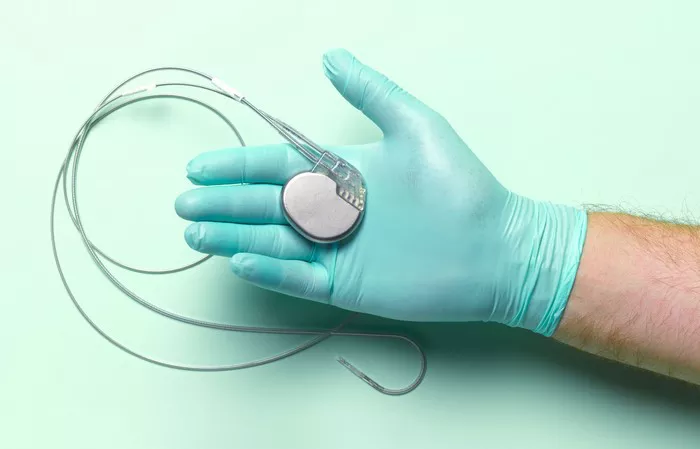Living with a pacemaker has become a common reality for millions of people worldwide. These small electronic devices, implanted in the chest or abdomen, help regulate abnormal heart rhythms and ensure the heart beats at a steady pace. For individuals with heart conditions such as bradycardia (slow heart rate) or arrhythmias (irregular heart rhythms), pacemakers can significantly improve quality of life and increase life expectancy. In this article, we will explore how long someone with a pacemaker can live, factors that influence life expectancy, and the impact of pacemakers on overall quality of life.
Before delving into life expectancy, it’s crucial to understand the role of pacemakers in cardiac health. A pacemaker is a small device that uses electrical impulses to prompt the heart to beat at a normal rate. It consists of a pulse generator (the device itself) and leads (wires) that connect the generator to the heart muscle. When the heart’s natural electrical system malfunctions, causing slow or irregular heartbeats, a pacemaker can intervene by sending electrical signals to regulate the heartbeat.
Factors Affecting Life Expectancy with a Pacemaker
1. Underlying Heart Condition: The primary factor influencing life expectancy with a pacemaker is the underlying heart condition. Pacemakers are commonly used in conditions such as atrial fibrillation, atrial flutter, heart block, and sick sinus syndrome. The severity and progression of these conditions can vary greatly among individuals, impacting how long they can live with a pacemaker.
2. Age and Overall Health: Age plays a significant role in life expectancy, as older individuals may have additional health concerns that can affect longevity. However, advancements in medical technology and improved overall health in older populations have led to longer life expectancies for individuals with pacemakers.
3. Pacemaker Functionality: The effectiveness of the pacemaker itself is crucial. Regular check-ups with a cardiologist ensure that the device is functioning optimally and delivering the necessary electrical signals to maintain a steady heartbeat. Modern pacemakers also come with features like rate-responsive pacing, which adjusts heart rate based on physical activity, further improving quality of life and potentially extending life expectancy.
4. Lifestyle Factors: Lifestyle choices such as diet, exercise, smoking habits, and alcohol consumption can impact heart health and, consequently, life expectancy with a pacemaker. Adopting a heart-healthy lifestyle can complement the benefits of the pacemaker and contribute to a longer, healthier life.
Life Expectancy Trends and Research Findings
Studies have shown positive outcomes for individuals with pacemakers in terms of life expectancy. According to research published in the Journal of the American College of Cardiology, patients receiving pacemakers for bradycardia had a significant improvement in survival rates compared to those without pacemakers. The study also highlighted the importance of regular follow-ups and adjustments to pacemaker settings to maximize benefits.
Another study published in Circulation Research found that pacemakers not only improve survival rates but also enhance quality of life by reducing symptoms such as fatigue, dizziness, and shortness of breath associated with heart rhythm disorders. This improvement in symptoms can lead to increased physical activity and overall well-being, further contributing to longevity.
Addressing Common Concerns and Myths
1. Battery Life: Pacemaker batteries typically last between 5 to 15 years, depending on usage and device settings. Regular check-ups with a cardiologist include monitoring battery life and scheduling replacements when necessary, ensuring uninterrupted functionality of the pacemaker.
2. Device Malfunction: While rare, pacemaker malfunctions can occur. However, advancements in device technology and rigorous testing protocols have significantly reduced the risk of malfunctions. Patients are also educated on warning signs of device issues and instructed to seek immediate medical attention if they experience symptoms such as palpitations, chest pain, or dizziness.
3. Activity Limitations: With proper medical guidance, individuals with pacemakers can lead active lifestyles, including exercise and recreational activities. Modern pacemakers are designed to adapt to varying physical demands and ensure a consistent heart rate during exertion.
Enhancing Quality of Life with a Pacemaker
Beyond extending life expectancy, pacemakers contribute to a better quality of life for many individuals. By stabilizing heart rhythms and reducing symptoms associated with cardiac arrhythmias, pacemakers enable patients to engage in daily activities, pursue hobbies, and enjoy time with loved ones without constant concern about heart health.
Conclusion
The question of how long someone with a pacemaker can live is multifaceted, influenced by factors such as underlying heart condition, age, pacemaker functionality, lifestyle choices, and adherence to medical recommendations. With proper medical care, regular follow-ups, and a healthy lifestyle, individuals with pacemakers can experience extended life expectancy and improved quality of life, emphasizing the significant role these devices play in cardiac health and overall well-being.

